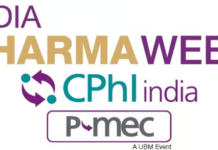New Delhi, February 20,2016: A new study, tobacco taxes in India: an empirical analysis, commissioned by the Ministry of Health & Family Welfare, Government of India and World Health organization (WHO) Country Office for India has found that prices of tobacco products in India have not increased substantially over time, thus making these products even cheaper than essential food items.
The study was conducted by the Institute for Studies in Industrial Development and Public Health Foundation of India, covering the period from 2006 to 2013, includes cigarette, bidi and smokeless tobacco (zarda /kimam/surti, paan masala and chewing tobacco) products.
The study revealed that the current excise and Value Added Tax (VAT) rates are insufficient to increase the prices of tobacco products, therefore making these products easily affordable.
Highlighting that tobacco taxation as a fiscal policy is a win-win for both public health as well as revenue generation, Dr Henk Bekedam, WHO Representative to India said, “A comprehensive tax policy leads to reduction in tobacco use especially among young people and at the same time provides increased revenues to the government.”
It has also been seen that affordability, in relation to income, of tobacco products is increasing at the national level, except for recent yearS. This is true even for the poorest households in the country. The tax burden on tobacco products is not in line with the WHO FCTC recommendations i.e. excise taxes should account for at least 70% of retail prices of the tobacco products.
In recent times, the share of tax burden has also declined; for cigarettes it declined from 55.3% in 2008 to 36.8 % in 2013 and for bidis it has declined from 7.2% in 2011 to 5.3% in 2013.
The study corroborates the recent WHO Report on the Global Tobacco Epidemic, 2015, which indicated that cigarettes have become more affordable in India during 2008-14.
According to Article 6 of the World Health Organization Framework Convention on Tobacco Control (WHO FCTC) to which India is a party, the prices of tobacco products must be increased periodically to make them inflation-adjusted and there should be a uniform increase in tax rates across products.
“Tobacco taxation policy is the most cost effective strategy for tobacco control and has the ability to affect consumption, prevalence and affordability. Higher prices of tobacco products can promote cessation and prevent initiation among young people. This study reiterates the need for development of comprehensive tax policy for tobacco products to make them progressively less affordable over time by indexing tax increases on tobacco products to inflation. A simplified tax structure that uniformly taxes all tobacco products from the organized and unorganized sectors will have the greatest public health benefit for both consumers and the government,” said Prof. K. Srinath Reddy, President, Public Health Foundation of India.
The study recommends that the tax on all type of tobacco products should be increased substantially and further the tobacco tax regime should be broadened to include unorganized sector manufacturing under the tax net. It has also recommended that the tax exemptions on production of less than two million bidis should be eliminated and tax slabs on cigarettes based on length should be eliminated in a phased manner.
These findings come on the heels of another Ministry of Health & Family Welfare report[1], which estimated that the total economic cost attributable to tobacco use from all diseases in the year 2011 amounted to a staggering Rs. 1,04,500 crores (US$ 22.4 billion) in India,equivalent to 1.04% of India’s Gross Domestic Product.
Corporate Comm India (CCI Newswire)






















